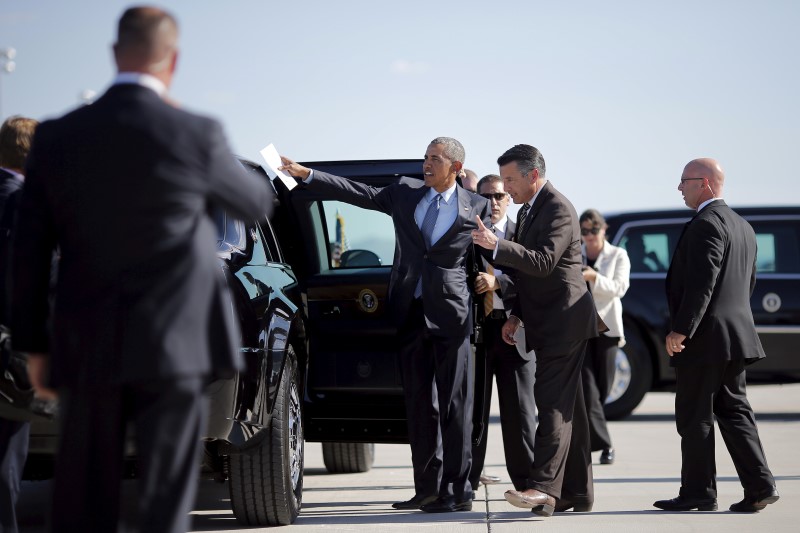By Richard Cowan and Susan Cornwell
WASHINGTON (Reuters) - Nevada Governor Brian Sandoval, a moderate Republican, took himself out of consideration for appointment to the U.S. Supreme Court on Thursday as Senate Republicans dug in on their vow not to act on any nominee by President Barack Obama.
Asked if the White House was disappointed by Sandoval's decision, Obama spokesman Josh Earnest told reporters, "He's obviously entitled to make decisions about his own career."
Sandoval's name surfaced as a possible nominee on Wednesday, but Senate Republicans quickly said they still would not hold hearings or vote on any Obama nominee to fill the Supreme Court vacancy left by the Feb. 13 death of conservative Justice Antonin Scalia. Obama's appointee could pivot the court to the left for the first time in decades.
Sandoval, a Mexican-American who was Nevada's first Hispanic governor, did not offer a reason for his withdrawal.
"Earlier today, I notified the White House that I do not wish to be considered at this time for possible nomination to the Supreme Court of the United States," he said in a statement.
"The notion of being considered for a seat on the highest court in the land is beyond humbling and I am incredibly grateful to have been mentioned."
Earlier on Thursday, Democratic presidential candidate Hillary Clinton expressed concern about Sandoval, urging Obama to pick a "true progressive." But Nancy Pelosi, the top House of Representatives Democrat, called it a "good idea" for Obama to consider Republicans as well as Democrats.
The Republican-led Senate must confirm any nominee.
Sandoval, 52, was appointed a judge by Republican President George W. Bush before becoming governor. He took a traditional Republican stance backing gun rights but held more moderate views on social issues, supporting abortion rights.
Obama will meet next Tuesday with Senate Republican and Democratic leaders regarding a court nominee, officials said.
Majority Leader Mitch McConnell and Judiciary Committee Chairman Chuck Grassley said they will use the meeting to reiterate the Republican stance that the Senate will not act on any Supreme Court nominee until the next president takes office in January 2017, following the Nov. 8 presidential election.
Republicans hope to win back the White House then.
The fight over the nomination got nastier as Grassley accused Senate Democratic Leader Harry Reid of "childish tantrums" after Reid called Grassley the most obstructionist Judiciary Committee chairman ever.

Reid responded: "A childish tantrum, when we're asking him to do his job?"